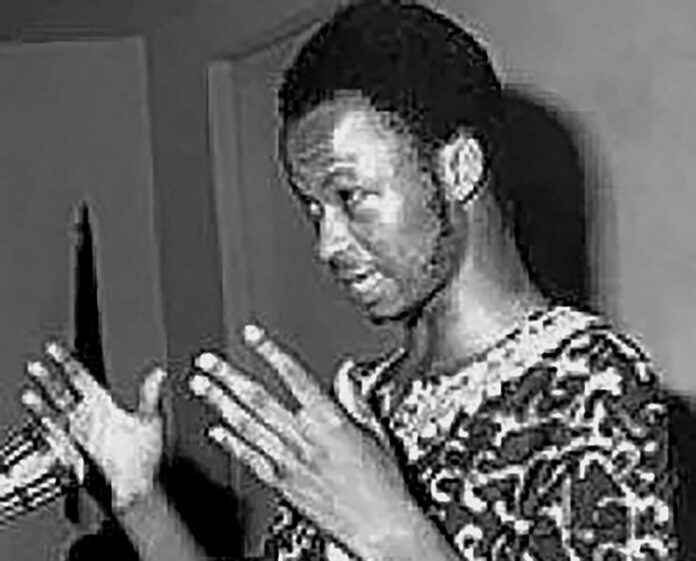After an eventful week of high anxiety, with conflicting political claims made, it is appropriate to consider what affects all of us as we end the 28th year of our fragile democracy.
Shakespeare’s Macbeth, at his lowest moment, readily comes to mind. The lofty promises of “Tomorrow, and tomorrow, and tomorrow” have been quickly forgotten, making us wonder if our memory is playing tricks on us. Surely our leaders were not lying.
While we wonder if we may be mistaken, the majority in our mineral and resource-rich country simply struggle to eke out a miserable existence, not knowing how to put food on the rickety table. We come to the terrible realisation that “all our yesterdays have lighted fools and made life ‘The way to dusty death’. Totally dependent, “Life’s but a walking shadow”.
We have been reduced to being “a poor player, That struts and frets his hour upon the stage, And then is heard no more”. Except when our wrath explodes violently on those close to and around us and joins in protest in our potholed, rubbish-strewn streets.
We are forced to ask if ours “is a tale Told by an idiot, full of sound and fury, Signifying nothing”? Nobody seems to hear or care. Then, we dimly recall that on March 21, 1960 thousands of African women, men and children had the death-defying courage to openly challenge the notorious pass laws in Sharpeville, Orlando,
Langa, Cato Manor and elsewhere in our oppressively controlled country, eventually causing the United Nations to declare this as the International Day for the Elimination of Racial Discrimination.
We also seem to recollect that about a fortnight after the Sharpeville massacre, the Unlawful Organisations Act was passed by the apartheid parliament. A pall of fear engulfed the country as the ANC and PAC were banned at the end of April 1960. Amidst this crime against our humanity, school children inspired by the South African Student Movement and Tsietsi Mashinini rose up on June 16 1976 in Soweto, the Reef and throughout the country, infusing the spirit of defiance against Afrikaans becoming the medium of instruction in schools. Liberation ranks in exile, mainly the ANC, swelled.
The class of ’76, and those who are older, have now been reduced to a fast-shrinking minority of less than 16% of our total population. Some 60% of our highly unequal society comprise young people who are under 30 years of age. This poverty-stricken, mostly unengaged, often-hungry majority only know the promise of democracy, and its many failures.
Our young majority feels essentially left out of most of the rights proclaimed by our constitution. Importantly, the material benefits – grossly shown off in social media by the idle rich – have eluded them. Many of our children in public education grow up under an enormous deficit in nearly all indices for thriving, belonging, achieving, and developing a successful future in a modern technological democratic era, where we have the lowest employment and highest unemployment rates in the world.
As we leave behind the devastation of the pandemic, the heightened sense of hopelessness and helplessness is becoming a worrying norm.
The growing feeling of exclusion, the self-serving of many in leadership, the worsening socioeconomic situation, the untenable crime rates, the lack of basic services, the lack of accountability especially for corruption, have become the stark void that seems to harshly stare at us daily. Then, the flash hits us that we have been through the worst and have recovered.
The costs to our integrity as full and equal members of the human family may not be as apparent as we go about the pain of life, reflecting every now and then in our listless eyes, perhaps not fully recovered.
We know in our mind’s eye that, unlike Macbeth, we refuse to become a “brief candle”, choosing instead to strut fully on all the stages available to us, making ourselves felt, heard and playing a central role in shaping our future, despite the man-made obstacles, ably abetted by natural disasters.
We are sure in the knowledge that we have overcome before, and that we shall do so again, making our mark where it makes the most difference, refusing to succumb to circumstances not of our creation.
We’re not Elton John’s “candle in the wind”. We will not burn out. We will again become what the founding president of our threatened democracy called the spark that will continue to light a veld fire of a better future across South Africa (Mandela 2002).
Follow @SundayWorldZA on Twitter and @sundayworldza on Instagram, or like our Facebook Page, Sunday World, by clicking here for the latest breaking news in South Africa. To Subscribe to Sunday World, click here



